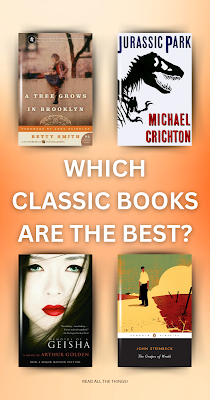 |
| This post contains affiliate links. I earn a commission from qualifying purchases. |
If you have an MFA in writing or literature, then you're very familiar with literary fiction. It was the only thing I was allowed to read and write in school. Once I left school, I learned that the majority of readers have no idea what "literary fiction" means. Aren't all books literature?
Let's demystify it. What do pretentious MFA people mean by "literary fiction"? Here are a few traits that will help you spot a literary book in the wild:
- Prioritizes artistic merit over entertainment value.
- Prioritizes character development over plot.
- Focuses on the psychology of characters.
- Explores motivation, morality, identity, relationships, or societal issues.
- Does not rely on genre tropes.
- Often features a writing style that is experimental or draws attention to itself.
Let's not lie to ourselves. A lot of literary fiction is dense, serious, pompous, and depressing. I love it, though. It's one of my favorite genres because it makes me see the world in new ways. Sometimes I'm stunned by how an author puts a complex emotion or problem into words. It makes me feel less alone.
If you're new to literary fiction, here are some books that will ease you into the genre. These novels straddle the line between mainstream commercial fiction and Very Serious Literature.




































.png)







